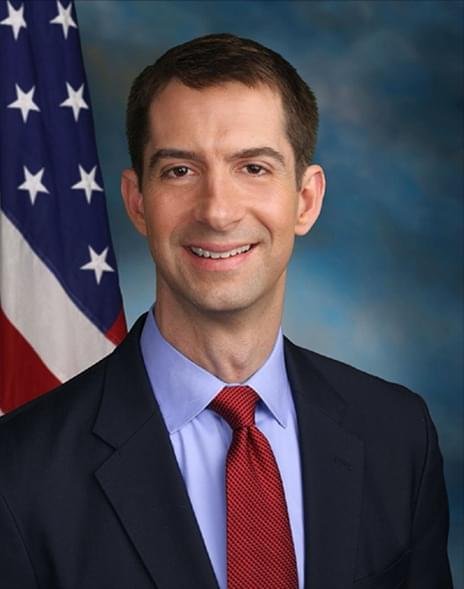Safe and productive
Kristen Gibson, professor and director of the Center for Food Safety, and Trey Malone, assistant professor of agricultural economics and agribusiness, are part of the multi-state team of researchers and regional industry partners that are continuing to develop Cultivate IQ with the funding. The experiment station is the research arm of the University of Arkansas System Division of Agriculture.
“Regional food systems can’t work unless they’re safe,” Gibson said. “There are regulatory aspects to meet, and barriers growers may face when connecting to certain groups.”
Gibson is also offering guidance on quality assurance management goals that will be used for vetting growers.
On the economics side of things, Malone is working with the group to evaluate the agri-food supply chains and identify unique datasets that are largely in the specialty crop space for small and medium-sized farms.
“This project represents a unique opportunity for us to integrate the on-campus technology into the land grant mission,” Malone said. “I’m really excited to get started and I am intrigued by the potential that AI presents in helping farmers make their planting and pricing decisions.”
The Cultivate IQ project aims to integrate sales and production data from across the farm-to-market supply chain to help plan and manage regional food supplies. Local food buyers, including aggregators and distributors, will host their growers on the platform, extending access to market insights, production planning tools and purchase orders.
Agriculture is Arkansas’ top industry, and the Arkansas Delta is one of the most fertile agricultural regions in the country, Malone noted. Northwest Arkansas also has one of the highest concentrations of small-scale farmers in the state, he said. According to the latest Arkansas Agriculture Profile, the state consistently ranks in the top one-third in the nation for agricultural cash farm receipts.
Avoiding both overproduction and underproduction can minimize food loss and can have a positive economic impact on smaller farms by opening up new market channels, says Meredith Adkins, assistant research professor with I3R and the project’s principal investigator.
“Our global food system is fragile, and disruption in the system is a national security concern,” Adkins said. “Small and mid-sized farms and mission-driven local food distributors, such as food hubs, play an important role in strengthening our regional food systems, but they face real barriers including access to real-time marketplace insights such as pricing, supply and demand. Cultivate IQ aims to enable these end users to compete more effectively by making regionally relevant data insights more accessible.”
Collaboration leads to solutions
Adkins’ team is composed of researchers from across the University of Arkansas System, as well as the University of Florida, University of Wisconsin-Madison, local industry partners Cureate and Junction AI. The team is one of seven multidisciplinary teams from the NSF Convergence Accelerator’s Track J: Food and Nutrition Security selected to advance from Phase 1, which focused on developing proof of concept, to Phase 2, in which the concept will be fully developed and deployed.
Ranu Jung, associate vice chancellor and I³R founding executive director, said the Cultivate IQ project advanced through the competitive process because it “will make a societal impact” and is an example of partnership and collaboration. Jung is also a senior adviser on the project.
“A collaborative approach between academic researchers, industry, government, nonprofits and other communities is important to optimize the production of food and connections between farmers and consumers, researchers and other stakeholders,” said Douglas Maughan, head of the NSF Convergence Accelerator program. “A lot of great work was accomplished by all teams in Phase 1, but there is still more to be done. The teams selected for Phase 2 are expected to build innovative, tangible solutions and strong partnerships to address food scarcity, irrigation issues, supply chain inequalities and inefficiencies, and more.”
The U.S. National Science Foundation launched the Convergence Accelerator program in 2019. It is aligned with the Directorate for Technology, Innovation and Partnerships, or TIP.
In addition to Adkins, Gibson and Malone, the Arkansas-based core team includes:
Thi Hoang Ngan Le, Ph.D., assistant professor, department of electrical engineering and computer science
Chase Rainwater, Ph.D., chair, department of industrial engineering
Kim Bryden, CEO, Cureate
Vance Reavie, CEO, Junction AI
Philip Sambol, project manager, I³R
Support staff at I³R, multiple undergraduate interns and graduate assistants are also working on the project under the mentorship of the co-investigators, including Benjamin Sapaning Sr., graduate assistant at I³R.
An interdisciplinary group of researchers will collaborate with the core team to support the success of the project. At the U of A, this includes the Center for Advanced Spatial Technologies, directed by Jack Cothren, Ph.D., who will support the project’s geospatial data models for regional crop supply, as well as the Indigenous Food and Agriculture Initiative at the School of Law, represented by Associate Director Carly Griffith Hotvedt, J.D./MPA, who advises the project on engagement with indigenous communities. Marty Matlock, Ph.D., a food systems expert and ecological engineer who recently served as senior adviser to the U.S. Secretary of Agriculture, also serves as an adviser to the team. Yasser Sanad, DVM, MVSC, Ph.D., leads University of Arkansas at Pine Bluff’s engagement with the project in the Central Arkansas Delta.
Two land-grant institutions outside of the state are also collaborating, including the University of Florida, represented by agricultural economist Di Fang, Ph.D., and two team members from the Center for Integrated Agricultural Systems at the University of Wisconsin-Madison. Erin Silva, Ph.D. and John Hendrickson at the University of Wisconsin-Madison are experts on farm viability and cost of production analysis by market channel.
Watch the team’s Phase 1 video and learn more about how the team is “Unlocking the Power of Convergence Research for Societal Impact.”
To learn more about Division of Agriculture research, visit the Arkansas Agricultural Experiment Station website: https://aaes.uada.edu. Follow on Twitter at @ArkAgResearch. To learn more about the Division of Agriculture, visit https://uada.edu/. Follow us on Twitter at @AgInArk. To learn about extension programs in Arkansas, contact your local Cooperative Extension Service agent or visit www.uaex.uada.edu.






















